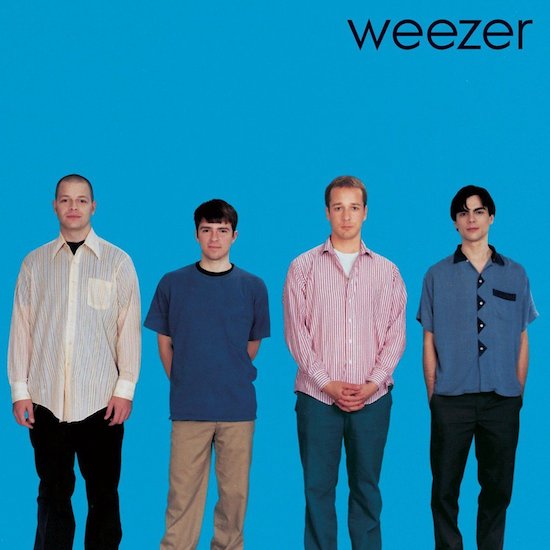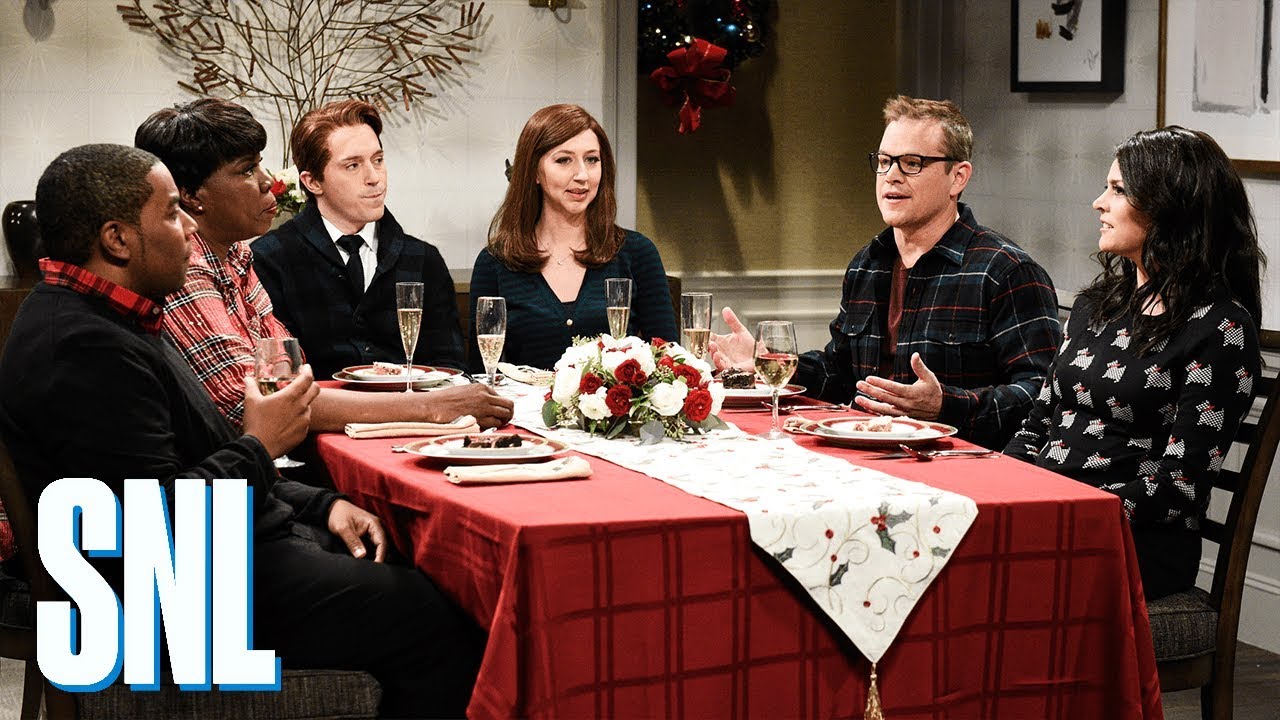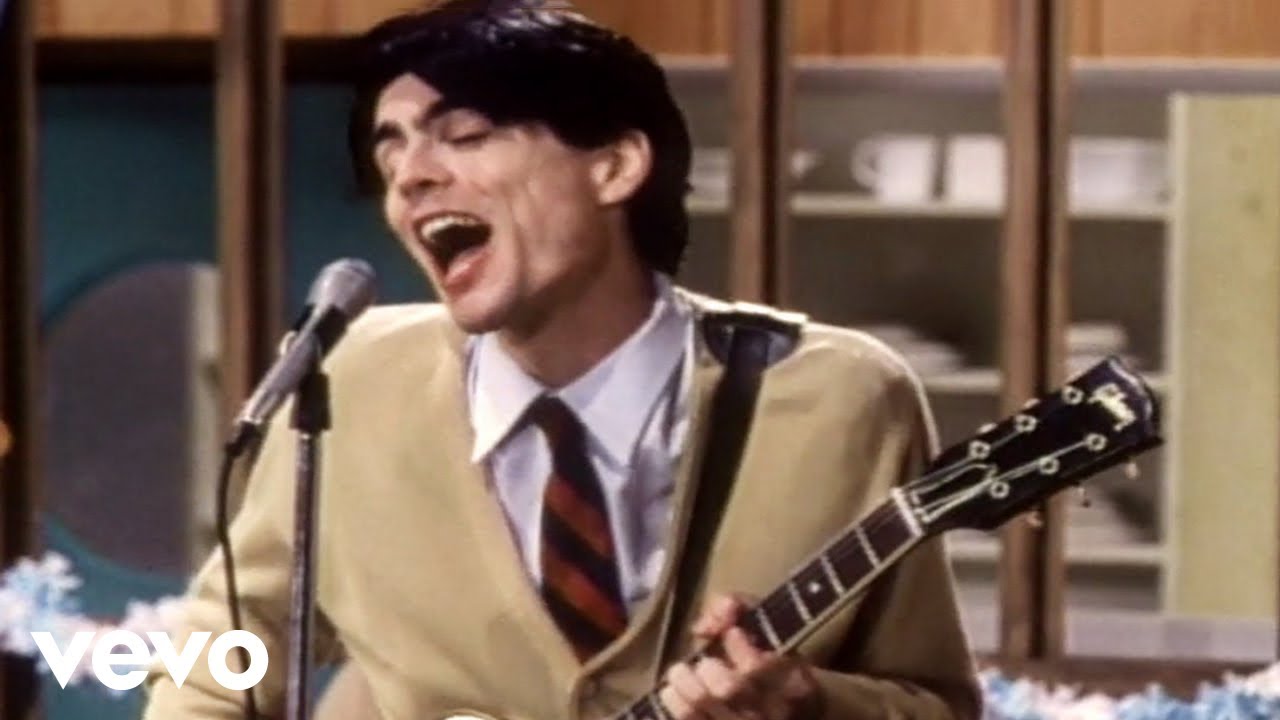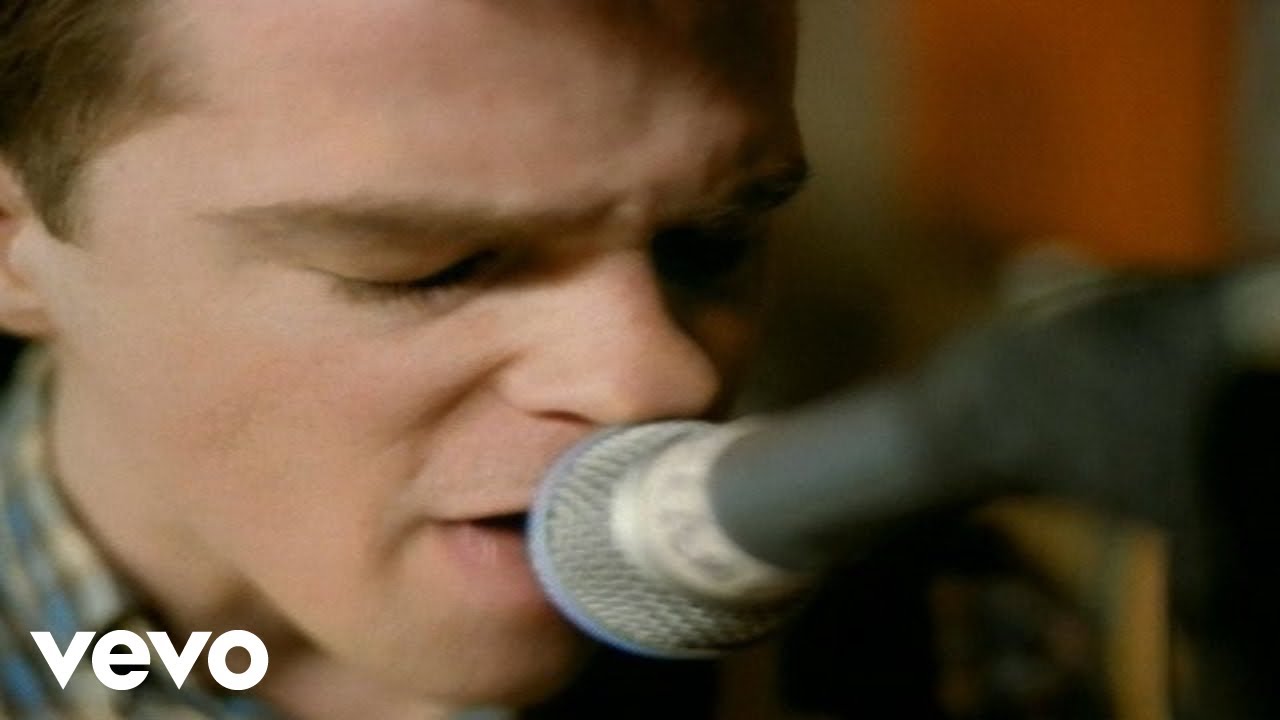I have a sweet tooth. There’s a particular combination of sounds that I find appealing, almost irrespective of who is making them: crunchy, fuzzy guitars; simple chord progressions, usually tracing the 1-4-5 on which rock & roll was founded; saccharine-sweet harmonies; uncomplicated drums. My first Ramones album, back when I was a kid, gave me the sound I’d been hearing in my head, and even now, deep into middle age, my ears prick up when I hear something that’s been formulated using those ingredients. Doesn’t matter who it is – McFly, The Hard-Ons, Green Day – and it doesn’t really matter whether I actually like the group and what they represent (usually I don’t), those sounds are my platonic ideal of what pop music sounds like.
Weezer’s first album, released on 10 May 1994, fit that ideal. Here was one of those groups who would blaze brightly and furiously, exhaust everything they had to say in two, maybe three albums, then disappear. Years later they would be remembered as The Ones That Got Away by a handful of super devotees, and when their couple of big hit singles came on the radio, people would sing along and wonder whatever happened to Weezer.
That’s not what happened. Weezer’s second album, Pinkerton, became one of the 374 records credited with inventing emo, and secured their place in the hearts of haversack-carrying mopers everywhere. After a five-year interlude their third, the one known as The Green Album gave them their highest chart placing yet, and from there they just carried on. And on. And on. Instead of being forgotten, they became a perpetual oddity: still a big group (earlier this year The Teal Album peaked at No 5 in the US charts), but somehow also the most crushingly disappointing rock band of their generation.
That strange combination of quirks means they’re still part of the pop cultural firmament, albeit probably only among middle aged people who still believe 90s alt-rock is a defining force in society. Late last year, Matt Damon was hosting Saturday Night Live. As is tradition, the host appeared in sketches throughout the show, and in one of them played a guest at a neighbourly dinner party excited when Weezer’s cover of ‘Africa’ by Toto comes on the streaming service.
"So you’re a Weezer fan," inquires Leslie Jones, as her husband tries to stop her engaging. "Sounds like you’re into the new stuff."
"Baby, be cool," her husband cautions.
"I’m just getting to know the neighbours." She turns to Damon, with smiling venom. "I’m just a little confused, because real Weezer fans know that they haven’t a good album since Pinkerton, in 96."
SNL devoted four minutes to a sketch whose only point was that Weezer fans get very aerated about whether Weezer are still any good, while the rest of the world wonders why anyone would care. And that sketch came 25 years after they released their first record. That’s proof that whatever you think of them, Weezer carried enough weight at one point to make ripples not just in pop music but in the wider culture.
Weezer’s first record, The Blue Album was released three weeks after Kurt Cobain killed himself. In context, it was an easy link to see it as inextricably linked to grunge. Nirvana had been one of the groups Rivers Cuomo obsessed over as he tried to work out (literally, work out, notebooks and all) how the perfect rock song worked, and The Blue Album shared both roaring guitars and emotional turmoil with Nirvana’s music. It seemed like a step back from the darkness: hey, kids, if you don’t want actual suicide, how about some low-grade angst? It was music for "the one / Who likes all our pretty songs / And he likes to sing along."
And it was a genuinely good album. A really, really good album. Goodness knows how and why Weezer had been allowed to bum around LA to no enthusiasm at all before Geffen signed them, because Cuomo had a fantastic ear for melody, and a goofish, nerdy uncertainty that made his misery seem universal, in a way that – for all his seismic cultural impact – Cobain’s perhaps didn’t. Cuomo’s pop culture references, too, were ones that would appeal across swathes. Following Cobain’s pop culture references could feel like being set homework (that’s not a criticism; the artists who set you homework are the ones who expand your taste), whereas Cuomo simply turned on the TV: he felt like just like Buddy Holly, and you’re Mary Tyler Moore, and look at us all, we’re in the cast of Happy Days. Weezer made everything a bit easier.
(Yes, I know parts of that paragraph sound ridiculous: how can something have a seismic cultural impact without being universal? Well, think of it this way: Cobain’s misery was perhaps something to dip into at moments of extremity; Cuomo’s was something you could deal with on a more regular basis. It was more like real life. And don’t forget that Nirvana’s moment of cultural ubiquity came when they had big, fuck-off rock songs that sounded amazing, not when they were churning around on a couple of chords. Nirvana would never have been huge if they’d sounded like Tad or Melvins.)
With hindsight, though, The Blue Album feels almost unrelated to grunge. Even when it skips closest to Seattle, it’s different. ‘Say It Ain’t So’, on paper, sounds like a parody of Pearl Jam: lad worries stepdad will become an alcoholic and leave, just like his biological dad did, with gentle verses exploding into furious verses. But it’s softer, somehow: it’s less forbidding, filled not with rage but sadness: you can sense Cuomo’s uncertainty and his desire to be comforted, not a need to hit out.
Musically, too, its lineage was different. Like the grunge bands, Weezer looked backward, but not to Sabbath, or the Stooges. Their ancestry lay more in powerpop, in Cheap Trick, especially: they share that group’s suburban alienation, and also sweetening of that with melodic sunshine. It’s a lineage that has often attracted clever and sly American songwriters – Fountains Of Wayne, a few years later, tacked to the same wind.
But Weezer, somehow, didn’t end up being one of the great groups. I wonder sometimes if that is because Cuomo is so clever – Weezer’s career was interrupted several times by his on-off completion of a degree at Harvard. I wonder if perhaps having created two albums that became totemic, it just became too easy for him. I wonder if, perhaps, he ended up with the problem very clever people doing something populist often have: contempt for his own work and his own talents. When you look at Weezer’s subsequent catalogue – rarely actually terrible (with some exceptions: Hurley is a truly excruciating record), but rarely sounding much more than tossed off – it’s easy to conclude the whole shebang is something he does out of weary duty, rather than any genuine passion.
There was a curious interview with Cuomo in Vulture a couple of years back. It was conducted by someone who had been at Harvard during one of Cuomo’s spells there and had previously interviewed him for the student paper, the Crimson. Cuomo was asked about his time at the university. "Such a deeply satisfying time in my life: intellectually, and spiritually, and creatively, and socially. I really miss it. I’ve had nothing like that since then. I’ve been deeply lonely. This is going to sound weird, but it wasn’t until I discovered Sam Harris’s podcast [Waking Up] that I started to feel some of that need for intellectual-hangout, cafeteria, lunch-room conversation to be satisfied. Now, I listen to him every day and it’s like, I’m listening to smart people talk and debate the issues, and I feel a little less lonely … It’s the same loneliness I felt touring on The Blue Album, on the bus. It’s like, there’s got to be something more to life than just the grind of touring and performing and doing interviews."
Those don’t sound like the words of someone in love with what he does. That, in itself, is hardly uncommon among musicians. It’s the specific desire for something else, something already experienced – a life of the mind – that is unusual. It’s not an inchoate desire to be a country squire, or try his hand at painting, or act. He wants to do something that requires more mental exercise than being a pop star.
But the problems of the later Weezer records aren’t all down to character traits developed in later years. Many of the problems are present on The Blue Album, except they didn’t present as problems, so much. There’s the attitude to women, which stretches through the catalogue (notably on Pinkerton‘s fetishisation of east Asian women). ‘Thank God For Girls’ from 2016’s The White Album has an extraordinary set of annotations on Genius from Cuomo: "I’m so jealous of the hooker-uppers. Seems like it’s so easy to get laid now. All these good looking atheletic young guys r getting so much free sex it kills me. Laxitutes. Such a bummer. Such a bummer. To be evaluated by women. To be graded. To be rated. Where do I stand? How big? How strong? How enduring? How energetic? How inventive? So sad that it comes to this. So sad. It IS a competition and I AM being compared." Cuomo was a married man of 46, a father of two, when he wrote that. Maybe it’s a take on radical honesty. Maybe. But it’s much the same as he felt in his early 20s, on ‘No One Else’, when all he – or his narrator – demanded was "a girl who will laugh for no one else / When I’m away, she puts her makeup on the shelf / When I’m away, she never leaves the house / I want a girl who laughs for no one else."
The pop culture references that were so welcoming on The Blue Album are still there, only now they’ve curdled – as pop culture references usually do – into a lazy shorthand, a way to avoid lyrical heavy lifting. One of the rare occasions when they serve a true purpose is on ‘Heart Songs’, from The Red Album (2008), where Cuomo lists the music he loved, and reminisces about the early days of Weezer. It’s a song that is personal, and for once the pop culture references really do pull their weight. It just seems a little sad that his appreciation of music’s power all comes from the time before he released albums.
Musicians don’t get to choose whom they influence, any more than they get to choose who buys their records. And perhaps, given their sound isn’t exactly unique, Weezer never really influenced anyone. There’s the suggestion that they made geekdom cool, but indie fans had known all about being bespectacled and shy and awkward and seeking a home in music for years before Weezer. Maybe, in fact, their influence was less in normalising awkwardness and anxiety than in legitimising frothy pop punk about suburban losers: it’s not a long journey from The Blue Album to, say, ‘Teenage Dirtbag’ by Wheatus ("Yeah I’m just a teenage dirt bag, baby / Listen to Iron Maiden, baby") or ‘Girl All The Bad Guys Want’ by Bowling For Soup ("She likes the Godsmack and I like Agent Orange / Her CD changer’s full of singers that are mad at their dad"). God knows, if I’d been watching MTV in my Harvard dorm room and seen all these chancers taking my record and reducing it to semi-novelty rock, I’d start feeling contempt for my work.
And yet, like Matt Damon in that SNL sketch, every time a new Weezer album comes round, there are people who want to convince themselves it’s still brilliant. It won’t be. It won’t ever be again. Sorry. I look at the fresh-faced kid fronting Weezer in those early videos and I wonder what he thought, what he wanted to be. I doubt it was a middle-aged man posting online about his sexual jealousy of young men.





